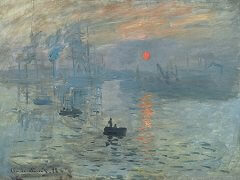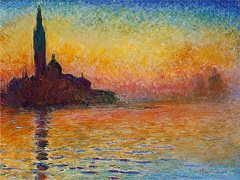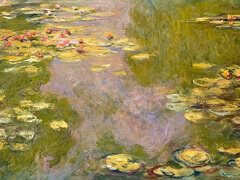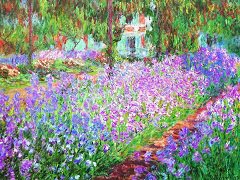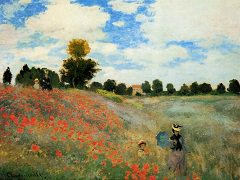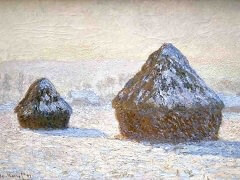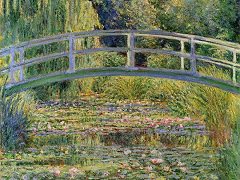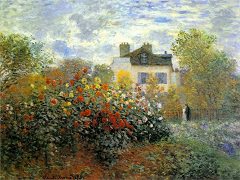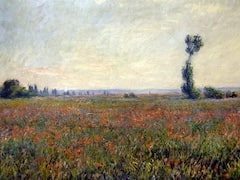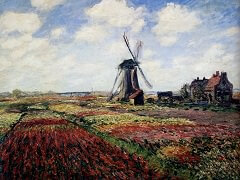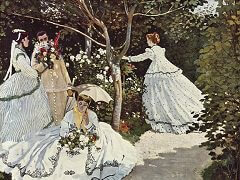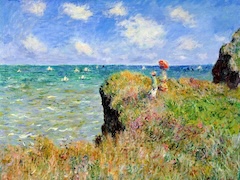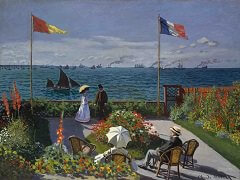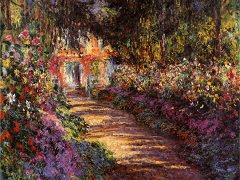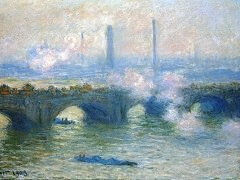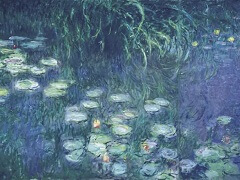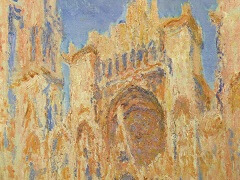The Cliff, Étretat, Sunset by Claude Monet
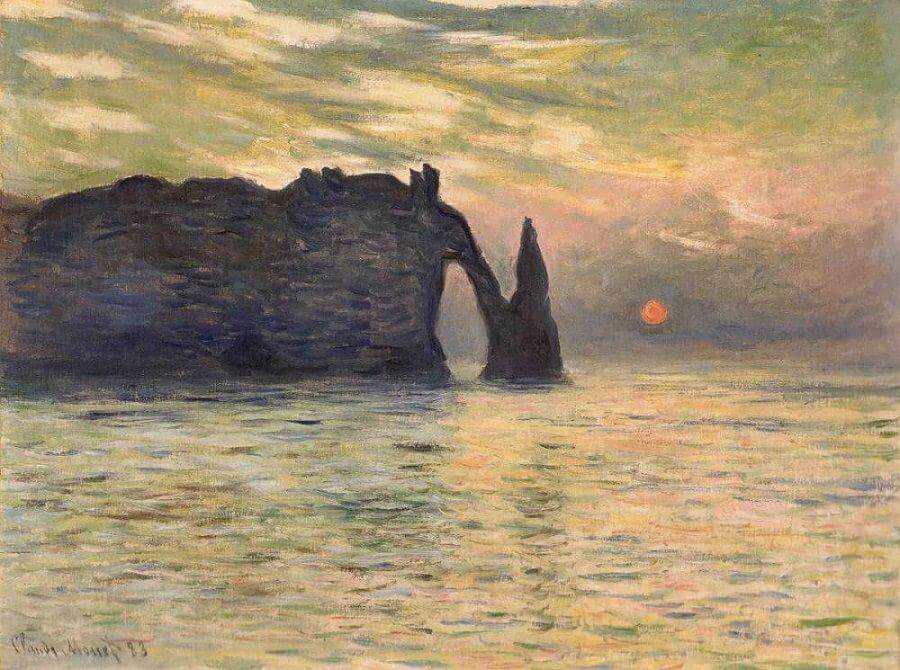
The monumentality of the famous cliffs at the resort of Etretat in Monet's native Normandy distinguishes them from most of his other subjects. The rock formations are known as the Elephant and the Needle because of their shapes. More commonly, Monet selected an unobtrusive corner of a meadow or stretch of river for his landscapes. The Etretat painting does, however, serve as a typical example of the Impressionist style, demonstrating an interest in atmospheric conditions and the effects of light as the day progresses. Colors are vibrant and applied to the canvas in separated brushstrokes that create the illusion of motion on the water's surface. Close examination of the setting sun reveals Monet's technique of applying one color of paint over another that is still wet. He thus achieved a partial mixture, not a thorough blending of the colors as traditional painters had done on their palettes.
Monet's almost daily letters to his future wife Alice during his painting campaign at Etretat record his awe of the cliffs. His desire to do justice to the subject intensified his obsession with achieving ambitious goals. His letters describe his struggles with the February weather, the changing tides, and the difficult terrain. When, in true Impressionist manner, he set up his easel on the shore to observe the subject, he was making studies that he intended to take back to his studio for producing finished paintings. His hope of having a few finished canvases at the conclusion of his three-week sojourn was not realized, but he did paint at least eighteen views of Etretat dated 1883.

